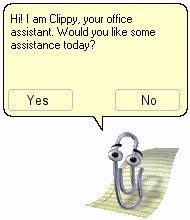Confessions: Network-Terminating Protocol
by in Feature Articles on 2013-12-17Paul's family has a long, proud tradition of working in IT. His father ran support for a Stanford computer lab, and his grandfather — a greengrocer — claimed to have seen a UNIVAC one time. Ambling dutifully down the path their ancestors trod, not only was Paul sysadmin for a research lab, but his brother, Saul, was on the same university's network security team. The brothers' relationship was an amicable one, but there was one incident about which Saul always felt the need to give Paul a hard time.
It had been like any other day at Paul's workstation when an IM arrived from his brother: "I'm going to forward you an email we just got from the operator of a public NTP server - it's about one of YOUR machines." That sounded ominous, but Paul didn't have long to wait; a moment later, the complaint arrived in his inbox:


 Leighton started his career as an apprentice ICT technician for a Secondary school. The job was roughly what you would expect, but the interview went down as one of the most surreal moments of Leighton's life. With his first interview scheduled to begin at 9:15 AM, Leighton arrived forty-five minutes early in his new suit and tie. At T-minus two minutes he remained the only candidate in the reception area, and his confidence was growing. But at 9:13, in walked Dave.
Leighton started his career as an apprentice ICT technician for a Secondary school. The job was roughly what you would expect, but the interview went down as one of the most surreal moments of Leighton's life. With his first interview scheduled to begin at 9:15 AM, Leighton arrived forty-five minutes early in his new suit and tie. At T-minus two minutes he remained the only candidate in the reception area, and his confidence was growing. But at 9:13, in walked Dave.